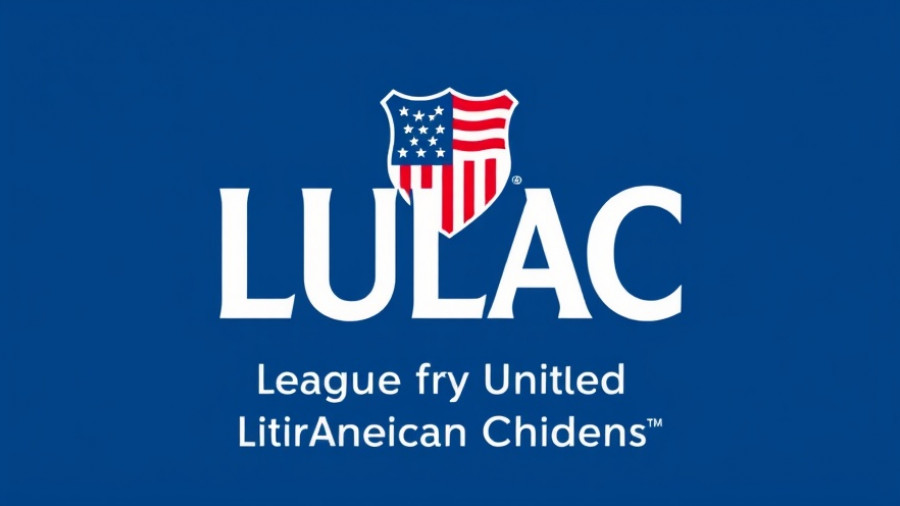
Understanding the Resignation: A Key Moment for LULAC
Elsa Aranda, the recently reinstated state director of the League of United Latin American Citizens (LULAC) in Nebraska, made headlines when she resigned amid controversy regarding a proposed partnership between Douglas County jail and U.S. Immigration and Customs Enforcement (ICE). This resignation is not merely a personal decision but echoes larger themes of civil rights, community values, and public perception within immigrant rights discussions.
The Heart of the Matter: Detention and Civil Rights
At the core of Aranda's resignation is her fundamental belief about LULAC's role in immigration matters. In her own words, "LULAC's role is not to facilitate detention; our role is to ensure that if detention occurs, it happens under humane, fair, and transparent conditions." These assertions are crucial in a time when immigrant rights are a heated topic. As homeowners and renters in Omaha and nearby suburbs look increasingly to leaders for guidance on community issues, understanding the nuances of this debate is paramount, especially for Omaha families concerned about safety and fairness.
The Public Perception Challenge
While discussions on the proposed ICE partnership were intended to be practical, Aranda warned that associating LULAC with such initiatives could damage the organization's reputation. This sentiment was echoed by national spokesperson David Cruz, who remarked that the proposal's public perception could profoundly impact LULAC's credibility. Young professionals and tech-savvy families in Omaha might find parallels with their own experiences of navigating local and national service organizations, illustrating how public trust can be fragile and must be diligently protected.
A Broader Context: ICE Partnerships in Nebraska
The proposal itself came from Douglas County Sheriff Aaron Hanson, who argued for the financial benefits and better proximity to families. However, the response from local governance reveals a stalemate; four of the seven county commissioners have publicly expressed their opposition. This tension signifies a collective hesitance among Omaha residents, especially among young families and first-time homebuyers, who are likely invested in the community's moral standing and operational choices.
Looking Ahead: Implications for Omaha's Communities
As discussions around immigration and detention resurface in Omaha, it is essential for community members—homeowners, renters, and small business owners—to be informed about how civil rights organizations like LULAC interact with such proposals. Engaging in community dialogues could empower Omaha's families to advocate for humane immigration policies. For eco-conscious homeowners and modern living enthusiasts, understanding the ethical implications of local government actions will be a significant aspect of their civic engagement.
Call to Action: Be Informed and Engaged
As the situation evolves, Omaha community members are encouraged to stay informed about local governance and civil rights efforts. Attend local meetings, reach out to representatives, and participate in community forums to express support for humane treatment in immigration processes. Your voice can drive meaningful change and bolster the community's commitment to fairness and dignity for all residents.
In conclusion, the dynamics surrounding Aranda’s resignation and ICE's proposed partnership serve as a compelling reminder of the delicate balance between safety, community values, and human rights. For those in the Omaha community, this is a moment to reflect on our shared responsibilities toward fostering a just society.
 Add Row
Add Row  Add
Add 




Write A Comment